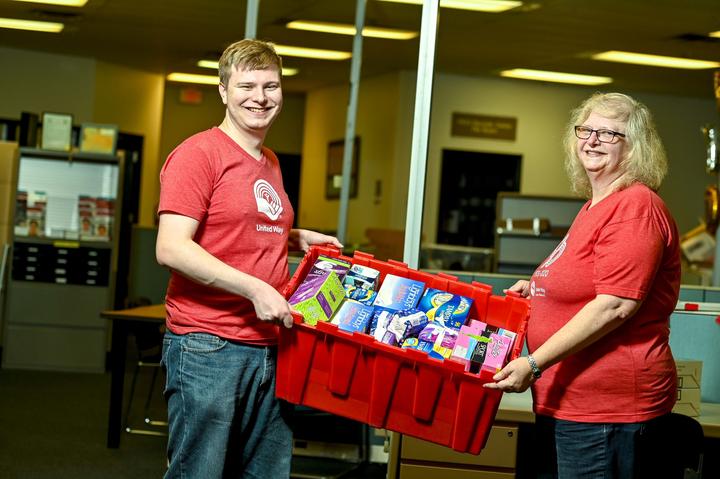United Way is doing what it can to reduce the cost of menstrual products for women on Vancouver Island.
May 6th is the kickoff for its Period Promise Campaign.
The goal of the project is to help women get access to the products they need through a variety of means.
Executive Director for United Way Central & Northern Vancouver Island, Signy Madden says periods are a fact of life. But if you’re living in poverty – or vulnerable in other ways – access to menstrual products can be challenging and the COVID-19 pandemic has only made it worse.
“We know that our neighbours are making tough decisions, like whether to buy period products or food. Periods don’t stop for pandemics, and COVID-19 has made affording menstrual products more difficult for thousands of Vancouver Islanders,” said Madden.
“We are grateful for our committed donors and supporters who are stepping up to join us by donating and advocating for access to period products for every person who needs them.”
Through the project, United Way is encouraging you to give financially, or donate period products like tampons, pads, cups, menstrual underwear. You can also help organize a Period Promise campaign to collect donations in your community, workplace, or school.
Earlier this year, United Way also released its Period Promise Research project final report, which had input from more than 1600 people across the province.
Some of the key findings from that report included:
- Menstrual products are broadly difficult for people in B.C. to access, but particularly difficult for people who rely on access to free products.
- Lack of access to menstrual products has a substantive impact on people’s access to public life.
- Broader access to free menstrual products in our community will benefit everybody, but it will make it much easier for people with lower incomes and lower levels of education to access both community organizations and public life.
- Community service organizations are an important part of how we can increase access to menstrual products to vulnerable populations in B.C.
- Indigenous people and people living with disabilities experience these impacts more than other groups. More specifically, out of the 70 indigenous people who took part in the survey, 47.14 percent reported going through a period without menstrual products, and 30 percent of respondent families said they couldn’t buy menstrual products for their dependents
If you want to take part in the Period Promise campaign, which runs from May 6th to June 3rd, visit United Way’s website.
If you’re interested in reading the final report on the Period Promise Research project, click here.




